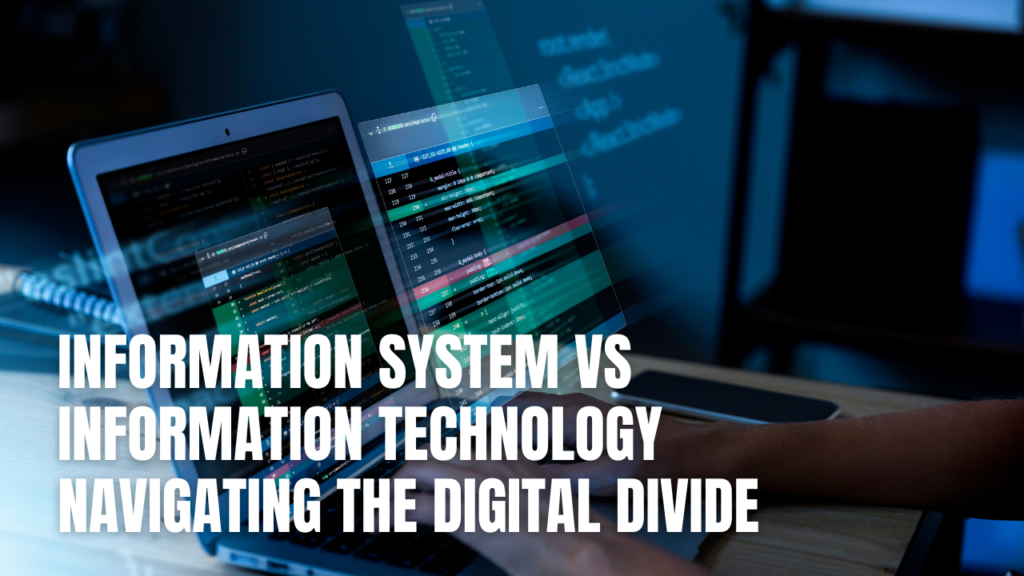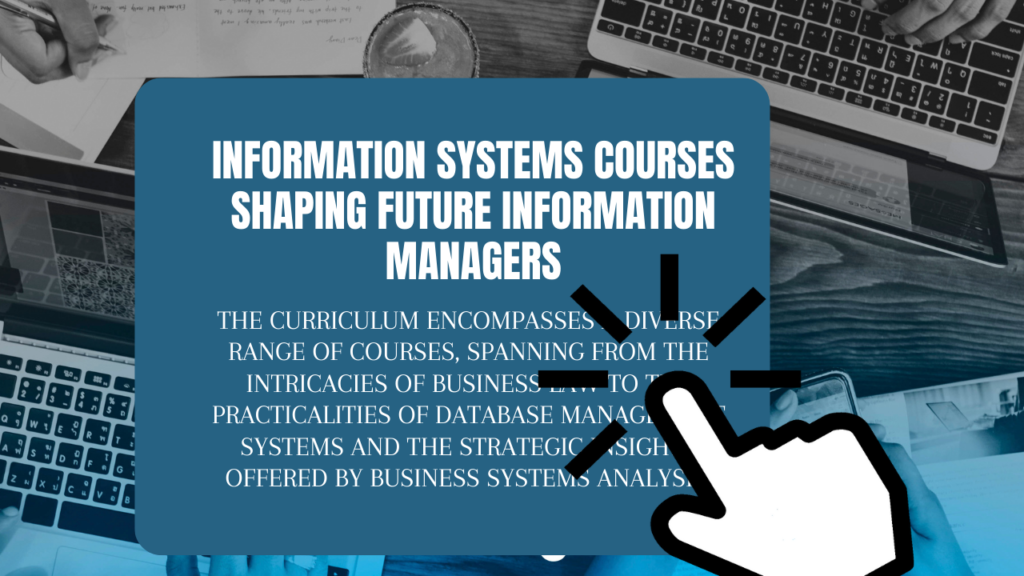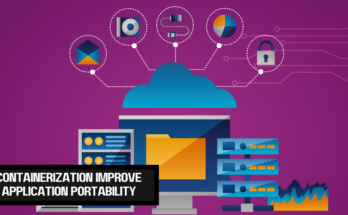Information System vs Information Technology: Navigating the Digital Divide
Exploring Information Technology
The foundation of computer-based information systems is information technology (IT), which includes the analysis, creation, application, maintenance, and oversight of these complex digital ecosystems. This dynamic discipline aims to convey optimal usage techniques to end users in addition to focusing on hardware, software, databases, and networks. Let’s delve into the transformative realm of online IT degrees, empowering students with critical thinking skills and innovative problem-solving capabilities, spanning disciplines like computer software, cyber and data security, and project management.
Information Systems:
Information Systems, on the other hand, extends beyond mere technology management. It entails the comprehensive handling of information, incorporating technology components, people, and processes. The coursework associated with Information Systems ranges from programming to communications, offering students insights into both technological planning and business management aspects. This holistic approach prepares individuals to implement information systems that internally support diverse companies and organizations.

Information System vs Information Technology
Understanding the concept of Information System vs Information Technology is crucial. While both deal with computer-based systems, they require distinct education and training paths. Picture Information Technology as a specialized subset of Information Systems. Information Systems, as a broad term, encompasses the entire set of information, whereas Information Technology specifically addresses the technological facet within that system. Information Systems serve as the bridge between technology and people, while Information Technology focuses on facilitating user understanding and utilization.
Information System vs Information Technology: A Comparison Table
| Feature | Information System | Information Technology |
|---|---|---|
| Definition | A formal, sociotechnical, organizational system designed to collect, process, store, and distribute information. | A portion of an information system that manages and exchanges information using data, networks, hardware, and software. |
| Purpose | To turn raw data into useful information for decision-making within an organization or business. | To help individuals perform their work effectively and achieve objectives within an organization or business. |
| Focus | Primarily on providing support to operations, management, and decision-making. | Mainly on improving productivity and efficiency through technology. |
| Components | – Task: The specific function being performed. – People: Users and stakeholders involved. – Structure: Organizational framework and procedures. – Technology: Hardware, software, and networks. | – Hardware: Physical devices like computers and peripherals. – Software: Operating systems, applications, and databases. – Networks: Infrastructure for communication and data transfer. – Data: The raw information being processed and managed. |
| Role | Acts as a bridge between technology and people. | Aids individuals in utilizing and making sense of the system. |
| Incorporation | Simply incorporates technology, people, and processes involved with information. | Designs, implements, maintains, and supports information or data within an information system. |
| Responsibilities | – Includes managing computer networks and applications. – Assessing how people and processes impact organization performance. | – Rolling out new software updates. – Troubleshooting user technology problems. – Replacing outdated hardware. – Meeting operational demands. |
| Functions | – Helps in storing operational data, communication records, documents, and revision histories. | – Aids in implementing communication. – Building and growing commerce and the business sector. – Improving the reputation of businesses. |
Navigating Career Paths
Information Technology Courses: Bridging Theory and Practice
Information Systems Courses: Shaping Future Information Managers
A Bachelor of Arts in Business Information Systems degree provides students with a comprehensive skill set, fostering proficiency in both the development and operation of information systems, along with the facilitation of effective information sharing. The curriculum encompasses a diverse range of courses, spanning from the intricacies of Business Law to the practicalities of Database Management Systems and the strategic insights offered by Business Systems Analysis.
Students acquire critical conceptual skills necessary for navigating the ever-changing information systems landscape through this educational journey, in addition to gaining a thorough grasp of the technical components of information technology. It is possible to equip people for the difficulties of the ever-changing corporate environment by combining academic knowledge with practical experience in fields like database administration, systems analysis, and legal issues.
Ultimately, the Bachelor of Arts in Business Information Systems program equips graduates with the expertise needed to not only understand the intricacies of information technology but also to contribute actively to the shaping of its future. It lays the foundation for professionals who can adeptly leverage information systems to drive innovation, efficiency, and success within the business realm.
Paving the Way: Careers in Information System vs Information Technology
Information Technology Careers: Shaping the Digital Frontier
The realm of careers with an online IT degree is vast, reflecting the ever-growing impact of technology on the business world. Opportunities include:
- Computer and Information Research Technologist
- Computer Network Architects
- Computer Systems Analysts
- Information Security Analysts
- Software Developers, Applications
- Software Developers, Systems Software
- Web Developers

Information Systems Careers: Nurturing Innovation in the Workplace
As the demand for innovative information systems rises, so does the job growth in this field. Potential careers for those with a BA in Business Information Systems include:
- Systems Trainer
- Support Specialist
- eCommerce Developer
- Enterprise Systems Manager
- Information Resource Manager
- Technology Consultant
- Business Analyst
Although the terms Information System vs Information Technology) are synonymous, Information System vs Information Technology speak to different facets of using and managing technology and data. IT is concerned with the networks, software, and hardware that make data processing and transmission possible. Information Systems (IS) centers on the structure, methods, and protocols that facilitate the efficient use of data to bolster corporate operations and decision-making. Organizations can develop, build, and maintain efficient information systems that support their business objectives by knowing Information System vs Information Technology.
Build a future in technology
It is certain that there will be a sustained high need for qualified computer technology specialists for many years to come. A degree is a wise investment in your future if you’re prepared to take the next step toward a lucrative IT profession. You are the only one who can decide whether information systems or information technology is best for you. Hopefully, after looking over the above comparisons, you’ll be able to decide which path best suits your interests and skill set. The good news is that you can achieve a rewarding new job by taking either path.


